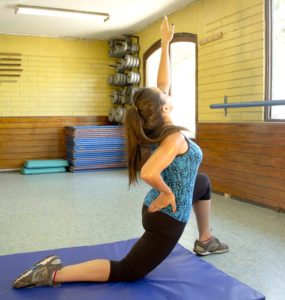Orthopedic injuries or surgeries can be challenging, requiring a comprehensive rehabilitation approach to restore functionality and improve quality of life. This is where orthopedic specialists step in, playing a crucial role in the recovery journey of individuals dealing with musculoskeletal issues. In this article, we’ll delve into the significance of orthopedic rehabilitation specialist and the integral part they play in the rehabilitation process.
Understanding Orthopedic Rehabilitation
Orthopedic rehabilitation focuses on the diagnosis, treatment, and rehabilitation of musculoskeletal conditions, encompassing a wide range of issues such as fractures, joint replacements, ligament injuries, and chronic conditions like arthritis. The primary goal is to optimize function, reduce pain, and enhance mobility through targeted interventions.
Expertise in Musculoskeletal Assessment
Orthopedic specialists possess specialized knowledge in musculoskeletal anatomy and function. They conduct thorough assessments to understand the specific nature of the injury or condition, considering factors such as range of motion, strength, flexibility, and any associated pain or discomfort. This in-depth analysis informs the development of personalized rehabilitation plans.
Tailored Rehabilitation Programs
One of the key roles of orthopedic specialists is to design individualized rehabilitation programs tailored to each patient’s unique needs. These programs may include a combination of exercises, stretches, manual therapy, and other modalities aimed at addressing specific impairments and promoting healing.
Post-Surgery Rehabilitation
Individuals undergoing orthopedic surgeries, such as joint replacements or ligament repairs, often require intensive rehabilitation post-operation. Orthopedic specialists collaborate with surgeons to create post-surgery rehabilitation plans that facilitate a smooth recovery process. This includes gradually restoring mobility, strength, and function while ensuring proper healing of surgical sites.
Pain Management Strategies
Chronic pain is a common aspect of many orthopedic conditions. Orthopedic specialists employ various pain management strategies, including therapeutic exercises, manual therapy techniques, and modalities such as heat or cold therapy. By addressing pain, they enhance patients’ ability to actively participate in their rehabilitation programs.
Education and Empowerment
Orthopedic specialists play a crucial role in educating patients about their conditions, treatment options, and the importance of active participation in the rehabilitation process. Empowering patients with knowledge helps them take ownership of their recovery and make informed decisions regarding their health.
Monitoring Progress and Adjusting Plans
Rehabilitation is an evolving process, and orthopedic rehabilitation specialists continuously monitor patients’ progress. Regular assessments allow them to make necessary adjustments to rehabilitation plans, ensuring that interventions align with the changing needs of the individual throughout the recovery journey.
Collaborative Approach
Successful orthopedic rehabilitation often involves a collaborative approach. Orthopedic rehabilitation specialists work closely with a multidisciplinary team, which may include orthopedic surgeons, physical therapists, occupational therapists, and other healthcare professionals. This collaboration ensures a holistic and well-coordinated approach to patient care.
Prehabilitation
In some cases, orthopedic specialists may engage in prehabilitation, which involves preparing individuals for upcoming orthopedic surgeries. Prehabilitation aims to optimize patients’ physical condition before surgery, potentially leading to better postoperative outcomes and a smoother recovery process.
Long-Term Wellness Planning
Beyond recovery, orthopedic specialists are often involved in long-term wellness planning. This may include developing maintenance exercises, lifestyle modifications, and strategies to prevent future injuries, promoting sustained musculoskeletal health.
In Conclusion
Orthopedic specialists are invaluable partners in the journey of individuals recovering from musculoskeletal injuries or surgeries. Through their expertise, personalized care, and commitment to patient education, these specialists contribute significantly to restoring functionality, alleviating pain, and enhancing the overall quality of life for those navigating the challenges of orthopedic conditions.


















